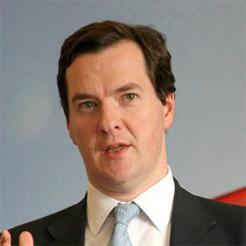Sector leaders are urgently seeking clarification of the status of charitable business rate relief worth £1.7bn, after Chancellor George Osborne announced that control over rates would move to local councils.
Osborne announced at the Conservative Party Conference yesterday that local government will be able to retain 100 per cent of local taxes – including all £26 billion of revenue from business rates – to spend on local government services.
Charities currently receive 80 per cent mandatory relief on business rates, granted by central government, as well as 20 per cent discretionary relief, which can be granted by the local authority.
Evidence collected by Civil Society News as part of the Charity Shops Survey 2015 suggests that most councils choose not to grant the discretionary relief.
Representatives from Charity Finance Group, NCVO and Charity Tax Group have all said they are seeking clarification of whether control over rate relief will also move to local authorities.
Business rate relief is the largest charitable tax relief. HMRC statistics up to the year ending March 2015 show that relief on national non-domestic rates was worth £1.69bn to the charity sector.
A Treasury spokeswoman told Civil Society News that the government plans do not currently include localisation of business rate reliefs, but that the government is “continuing to consider representations which included the issue of business rate reliefs" as part of the reform process.
She said the government will provide an update in the Autumn Statement which takes place on 25 November, in which the government will set out its spending plans for the next year.
Sector reacts
John Hemming, chair of the CTG, said: “A clear statement confirming that charity business rates relief will not be affected by this policy would help to allay concerns in the sector that this policy announcement could threaten this invaluable relief.”
Michael Braithwaite, senior policy officer at NCVO, said in a blog post that although yesterday saw no announcement on rate reliefs, “with all revenue from business rates being retained locally, the cost of providing reliefs is likely to fall entirely on local authorities”.
He said that without “further safeguards, this could certainly create pressure on them to offer less discretionary rate relief”.
Andrew O'Brien, head of policy at Charity Finance Group, said: "Devolution can be an opportunity for charities, but there are real concerns that devolution of rates could see charities lose their reliefs as local authorities make short term savings.
"Business rates relief is our biggest tax relief and critical for many organisations who would struggle to deliver services without it. We must make sure that this doesn't lead to unintended consequences for the sector."
Sir Stuart Etherington, chief executive of NCVO, has also called on the chancellor to clarify what is meant by Osborne’s announcement.
He said: “Business rate relief is a lifeline for charities – it helps many to maintain a presence on the high street and to provide critical services in your local community. From village halls to hospices, it is no exaggeration to say that in many cases this relief is critical for their survival.
“We call on the Chancellor to urgently clarify his intentions and safeguard this vital relief that enables charities and volunteers to continue their good work.”
Writing to ministers
The CTG has written to Damian Hinds, the Treasury Minister responsible for taxation, to ask the government to confirm that charity business rate relief will “not be endangered by the Chancellor’s proposal to devolve responsibility of business rates to local authorities”.
The CTG has also said that Hinds had previously assured sector bodies at a charity roundtable event that the Business Rates Review would consider the charity sector’s best interests. The CTG said it regards this commitment as essential “at a time when local authorities are limiting discretionary relief for charities with others even questioning whether all charities should be entitled to the mandatory 80 per cent relief”.
It added: “Any attempt to remove or dilute charity rate relief would be counterproductive because it would seriously weaken the ability of charities to carry out their activities for the public benefit.”
CFG and NCVO are also in the process of drafting a letter to the Chancellor outlining concerns over business rates and to request a meeting where charities will put their concerns to officials face-to-face.
Osborne’s devolution of business rates has also come under fire from many critics, who are concerned it will lead to a “postcode lottery”, with wealthier local authorities getting wealthier, while poorer ones suffer.
The Treasury has said a system to redistribute money to poorer parts of the country would be announced.
A review into business rates is currently ongoing.









